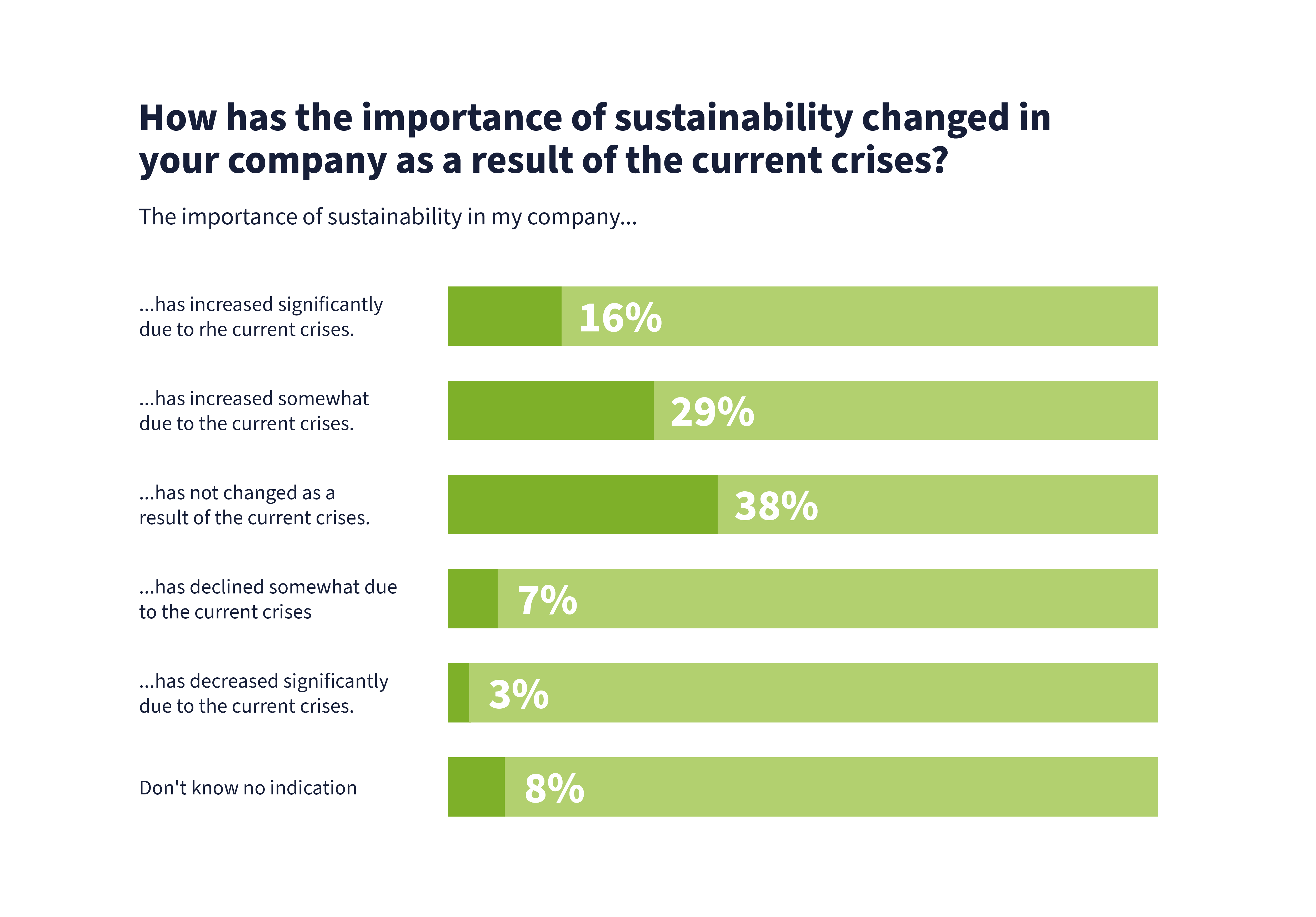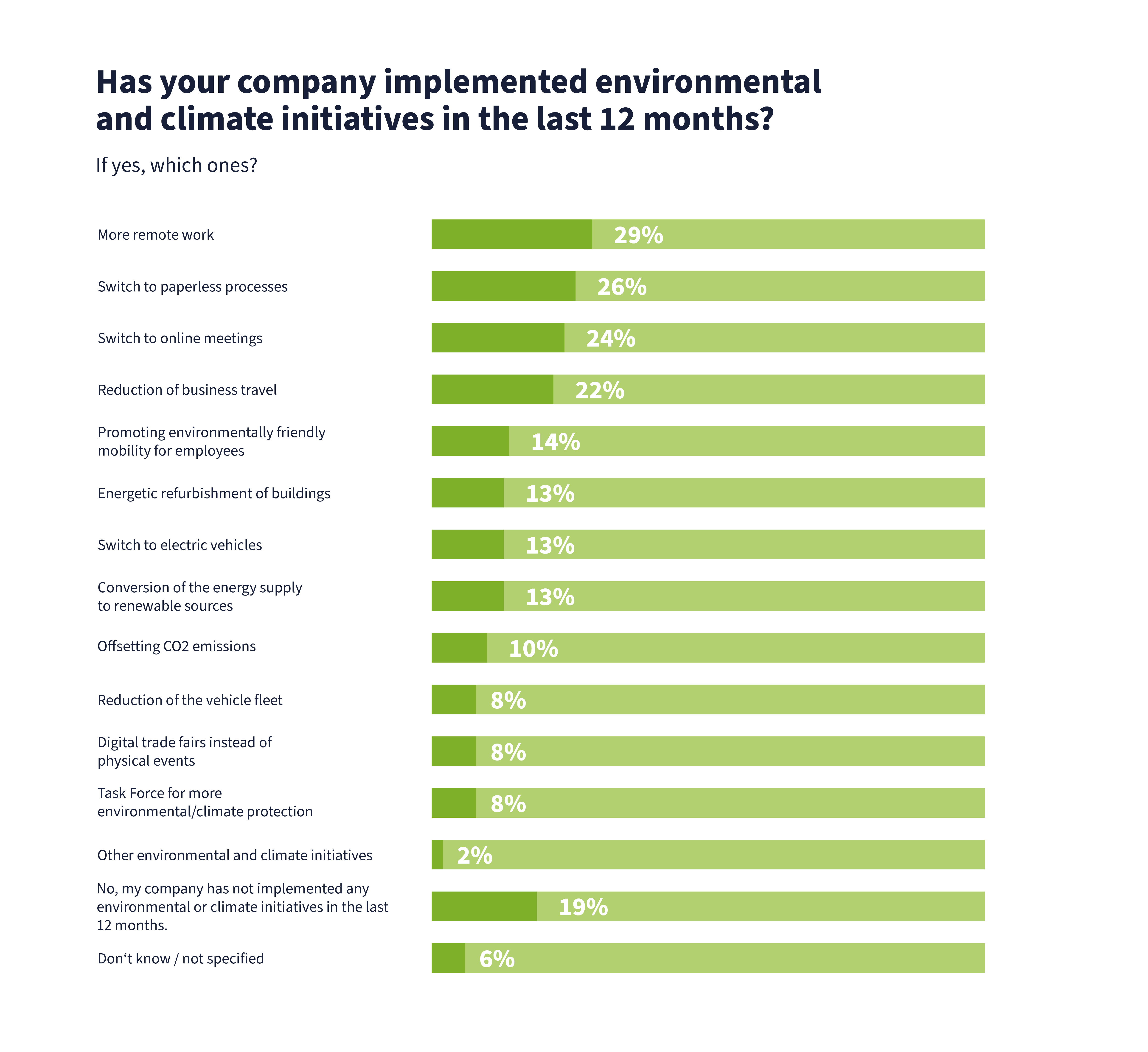The social and economic challenges of the last three years have shown that companies and people are able to deal with change quickly when necessary. Sustainability may not have been an acute issue, but it is a criterion that has been and continues to be on high priority when things get changed anyway. This is confirmed by a recent survey conducted by YouGov on behalf of Visable, the operator of Europe's leading online B2B platforms wlw (formerly "Wer liefert was") and europages. To collect the data, the market research institute approached decision makers from small and medium-sized German, French, Austrian and Swiss companies.

The survey took place again on the occasion of the "LFCA Week”. Visable supports the initiatve "Leaders for Climate Action (LFCA)" since a while in its goal of reaching a total of 100 million people with information on climate protection during the action week that always takes place in April.
"The need for companies and people to increasingly embed sustainability in their processes and behaviour is not new in itself. What is exciting is that it is obviously easier to take the issue on board when things have to be changed anyway than to make it an independent task. The fact that home office, reduced business trips and more and more paperless processes have become established and are widely perceived as sustainable, although the reason for establishing all this was different for most companies, is a sign that more and more companies and people now share new value systems for long-term healthy entrepreneurship," Visable-CEO Peter F. Schmid looks at the development.

Sustainability also gains in comparison to the previous year
29 percent of respondents said that the importance of sustainability in their companies had increased as a result of the current crises, 16 percent said that the importance of sustainability in their companies had increased significantly as a result of the current crises, compared to 15 percent in the previous year. This means that the proportion of those for whom sustainability has become more important has risen from a total of 41 percent in 2022 to 45 percent this year.
More efficient everyday working life and alternatives for mobility and energy
The most frequent answer to the question about the implementation of environmental and climate initiatives in the last 12 months is the increase of working from home.
29 percent of the respondents are less present at the workplace, 26 percent have switched to paperless processes, 24 percent of the respondents meet online rather than all going to one place to coordinate, and 22 percent have reduced business travel.
Looking at other measures, the companies surveyed have primarily focused on the areas of mobility and energy supply in order to act in an environmentally and climate-friendly manner. Here, too, there have been increases compared to the previous year: this year, 13 percent of the respondents have taken measures in the area of energy-efficient building renovation, compared to 11 percent in 2023.

